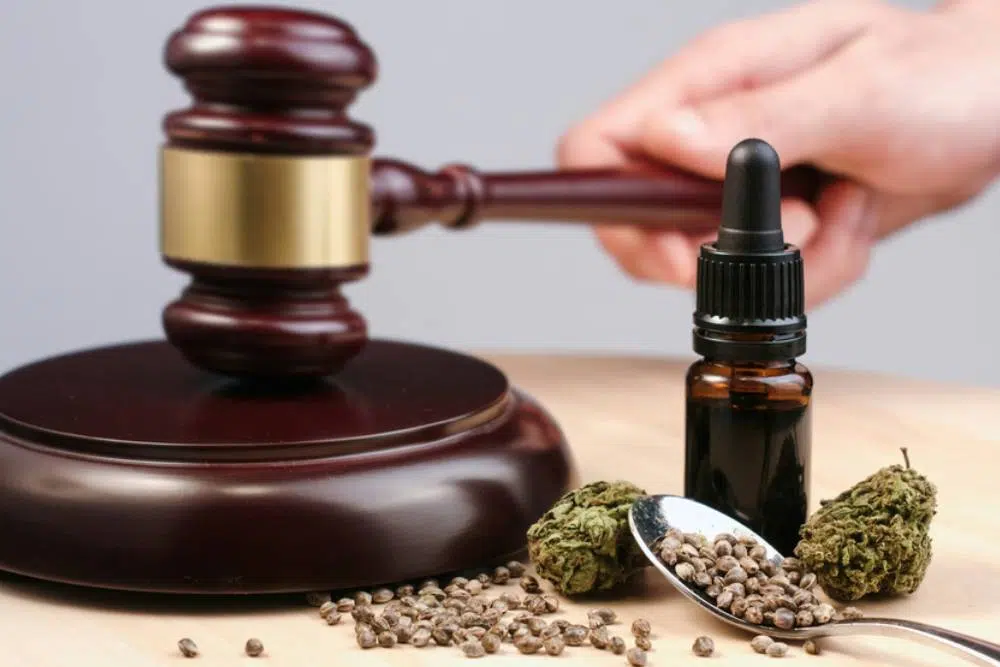Navigating the complexities of marijuana possession laws in Chicago can be challenging. As the legal landscape continues to evolve, it’s crucial to have knowledgeable Chicago Marijuana Possession Defense Lawyers by your side. Our experienced team understands the nuances of the Chicago legal system and is dedicated to protecting your rights.
In Chicago, marijuana possession still holds serious legal implications despite recent reforms. Being aware of these regulations helps individuals avoid potential pitfalls. Our expertise as Chicago criminal defense attorneys ensures that our clients receive comprehensive legal representation tailored to their unique situation.
Possessing marijuana without proper legal documentation can lead to significant consequences. We prioritize providing our clients with clear, accurate information and effective defense strategies. By working with us, you can confidently face your charges, knowing that a committed and informed legal team stands with you. Learn more about Chicago Marijuana Possession Defense Lawyers
Understanding Marijuana Laws and Charges in Illinois
Illinois has seen significant changes in its marijuana laws. These changes include both the legalization of recreational and medical use. Despite these shifts, there are still important legal considerations, penalties, and distinctions about marijuana possession.
The Legal Landscape: Cannabis Regulation and Tax Act
The Cannabis Regulation and Tax Act legalized recreational marijuana use for adults 21 and over in Illinois. This landmark law, effective January 1, 2020, allows for the possession of up to 30 grams of cannabis. Possession beyond this legal limit can lead to a cannabis charge. Additionally, the law imposes regulations on where cannabis can be consumed and purchased legally.
Sales of cannabis are taxed, and the Act has specific rules on licensing and distribution. It is crucial to understand these regulations to ensure compliance while engaging in legal cannabis activities.
Distinctions Between Misdemeanor and Felony Possession

Under Illinois law, marijuana possession charges vary from misdemeanors to felonies. A Class A misdemeanor involves possessing over 30 grams but less than 100 grams. This can result in up to one year in jail.
Possession of 100 to 500 grams elevates the charge to a Class 4 felony. Conviction can lead to a sentence of 1-3 years. The distinction between misdemeanor and felony possession depends largely on the amount of cannabis held.
Specifics of Illinois Law and Marijuana Possession Charges
Illinois marijuana possession laws define strict guidelines for legal limits. Beyond the 30 grams for recreational use, possession laws become stringent. Possession of more than 500 grams incurs more severe penalties, with escalating consequences as the amount increases.
Repeat offenders and distribution efforts complicate charges further. Various penalties apply depending on the specific circumstances and quantities involved. Understanding these specifics can help mitigate the risk of severe legal repercussions.
Medical Marijuana and Recreational Use Considerations
The Compassionate Use of Medical Cannabis Program Act allows patients with qualifying medical conditions access to marijuana. Medical users can possess a larger quantity than recreational users, aligning with their treatment needs. The program has its own set of regulations, application procedures, and cardholder rights.
Recreational users must adhere to stricter limits, as previously mentioned. It is important to note both are subject to municipal regulations, which can vary. Understanding these laws helps ensure compliance and avoid unnecessary legal issues.
Defense Strategies for Marijuana Possession Charges
When defending against marijuana possession charges, our focus must be on protecting constitutional rights, negotiating plea deals, leveraging pre-trial motions, and addressing serious accusations like possession with intent to distribute. These strategies are crucial to safeguarding one’s future and minimizing repercussions on employment opportunities and personal freedom.
Protecting Constitutional Rights During Proceedings
Ensuring that our client’s constitutional rights are respected is paramount, especially the Fourth Amendment protections against unreasonable searches and seizures. We meticulously examine the circumstances of every search or arrest. Was there probable cause? Was a warrant present?
Any procedural misstep can potentially lead to the suppression of evidence, paving the way for dismissal of charges. This forms a cornerstone in our defense strategies, helping to prevent wrongful convictions and protecting the rights of those facing marijuana possession charges.
Role of a Defense Lawyer in Plea Negotiations and Trials
Plea negotiations often play a vital role in drug-related cases, including marijuana possession. Our defense lawyers engage in 402 conferences with prosecutors, exploring deferred prosecution or reduced charges for our clients. Understanding class misdemeanors and felonies, we aim to lessen the impact on our clients’ criminal records.
When negotiations aren’t favorable, we are prepared to rigorously defend our clients in trial, presenting a formidable defense to achieve justice. Legal counsel is essential during these critical phases to navigate complexities and ensure the best outcomes.
Pre-Trial Motions and the Importance of Legal Counsel
Effective pre-trial motions can make or break a case. Our expertise in filing motions to suppress illegally obtained evidence is crucial. We scrutinize every aspect of how evidence was gathered, challenging any infringement on our client’s rights, including Fourth Amendment rights.
Legal counsel is vital during pre-trial motion hearings, where the admissibility of evidence is often determined. A strategic approach can lead to favorable rulings that weaken the prosecution’s case, potentially avoiding harsh penalties for possession charges.
Addressing Charges of Possession With Intent to Distribute
Charges of possession with intent to distribute cannabis or cannabis concentrates carry severe penalties, often classified as Class 1 felonies. In these cases, we meticulously investigate the quantities involved and the intent inferred by law enforcement.
Our defense strategy involves challenging the evidence suggesting intent to distribute, such as scales or large sums of cash. By focusing on weaknesses in the prosecution’s case, we strive to achieve reductions in charges or even dismissal. This meticulous approach ensures the best possible outcomes for our clients facing serious marijuana distribution allegations.






